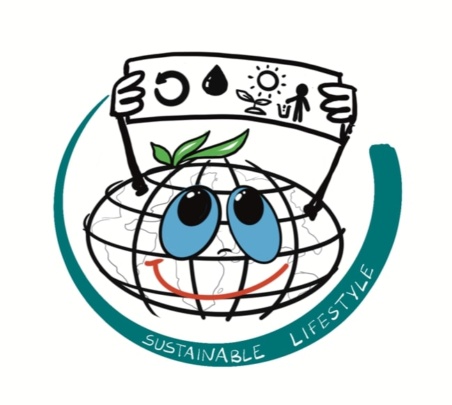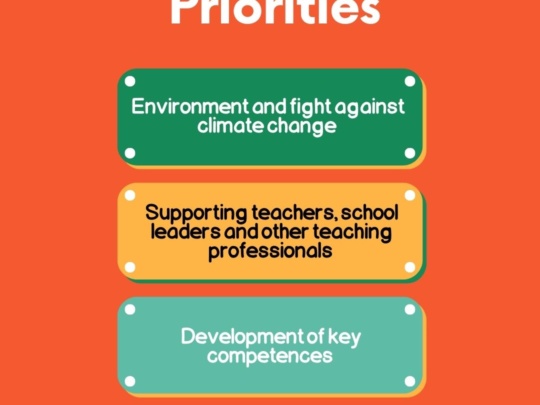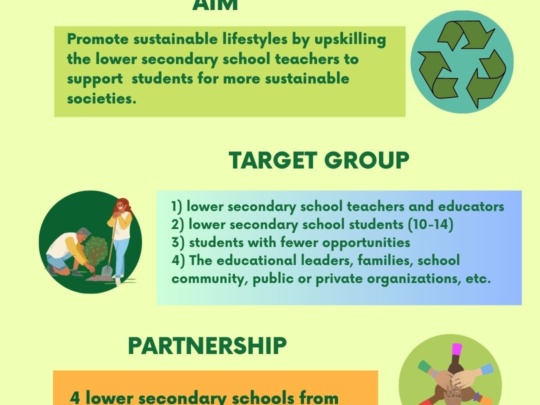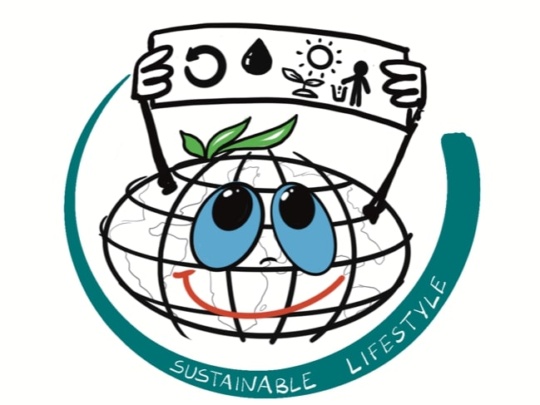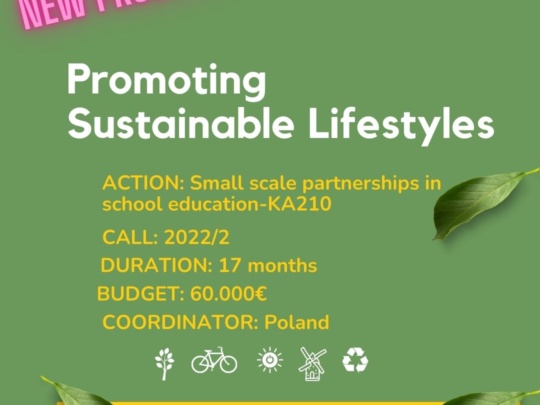Promoting Sustainable Lifestyles-PROSLIFE
2022-2-PL01-KA210-SCH-000098574
Erasmus+KA210-Small scale partnerships in school education
Project Start Date: 01.05.2023
Project End Date: 30.09.2024
EU Grant: 60.000 €
Coordinator:
Szkoła Podstawowa Nr 11 im. mjr. Jana Piwnika „Ponurego” w Starachowicach E10075526 (PL)
Partners:
-Osnovna škola Hugo Badalić E10104469 (HR)
-Alytaus Piliakalnio progimnazija E10005714 (LT)
-Şehit Necdet Alıcı Ortaokulu E10292366 (TR)
AIM:
This project, titled ‘Promoting Sustainable Lifestyles’ and acronym ‘PROSLIFE’ aims to promote sustainable lifestyles by empowering the knowledge and competencies of lower secondary school teachers to support their students for more sustainable societies.
OBJECTIVES:
1) Promote sustainable development to satisfy the demand for students to acquire sustainable lifestyle mindsets
2) Provide teachers with knowledge, values and key competences to enable students to become actors of change towards more sustainable lifestyle habits
3) Address the identified needs of target groups and selected three priorities
4) Support transformation and changes in teaching approaches with innovative tools
5) Encourage the newcomers and less experienced schools via increasing their motivation to step into cooperation with the Erasmus program
6) Support active European citizenship and bring the European dimension to the local level
7) Support the inclusion of target groups with fewer opportunities
8) Strengthen participant schools’ capability in the school education field and international dimension and cooperation.
EXPECTED RESULTS
1) Participating in professional learning and development opportunities via project activities, teachers/educators will develop a deeper understanding of the SDGs, particularly SDG-12 (Responsible Consumption and Production). They will develop the knowledge, skills, values and attitudes that enable students to realize the consequences of their consumption habits and act to become sustainable consumers. They will rethink traditional methods and transform them with more effective pedagogies needed to address climate change issues. They will be more qualified at designing teaching resources which will empower students’ key sustainability skills and attitudes.
2) Collaborating with international colleagues, teachers will get opportunity to exchange practice and school culture concerning sustainable lifestyles
3) Having raised awareness about ESD (Education for Sustainable Development), school leaders will support sustainable lifestyle education, active pedagogies and innovation in the classroom, foster sustainable consumption habits, provide opportunities to build the capacity of teachers, schools, and students for more sustainable societies.

